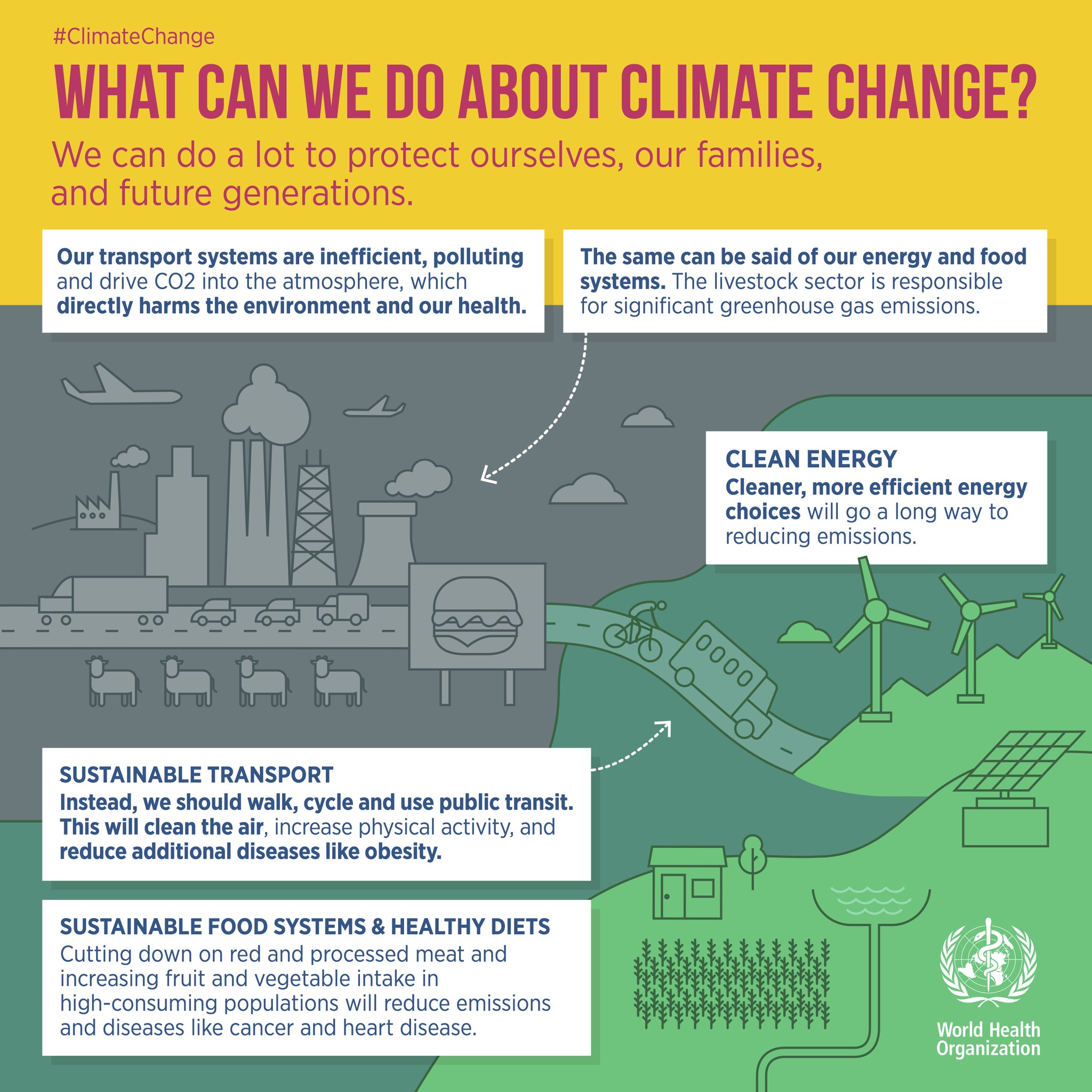As the inimitable Leo Tolstoy once revealed in his writings, the essence of a profound transformation often begins with individual resolve. In contemplating the existential quandary of climate change, the Bahá’í teachings furnish a compelling framework. The teachings exalt the interdependence of humanity and the natural world, urging individuals to recognize their manifold responsibilities toward the environment. Indeed, the question, “What can I do about the climate?” emerges as a call not only to action but to a holistic realignment of our values and understanding.
First, it is crucial to grasp the Bahá’í principle of unity. In this context, unity represents not the superficial amalgamation of disparate beliefs, but a profound appreciation for the interconnectedness of all life. The Bahá’í belief in the oneness of humanity is echoed in the understanding that our ecological crises stem from a disjointed relationship with nature. Embracing this principle, individuals can begin to view their ecological footprints as inextricably linked to the collective fate of the planet. Hence, the first step lies in cultivating a conscious relationship with the environment. Engage actively with the ecosystems surrounding you. Spend leisurely moments in nature—immerse yourself in the sights, sounds, and textures of the world. Through engaged observation, one can foster a sense of stewardship, awakening a visceral yearning to protect and preserve.
Moreover, the Bahá’í teachings advocate for the integration of spiritual principles within the fabric of one’s daily life. This integration can manifest in innumerable ways; for instance, individuals might reevaluate their consumption patterns. Reflecting on the teachings of moderation, one can cultivate a lifestyle where consumption is not driven by materialistic desires but by necessity and sustainability. This is not merely a personal indulgence; it represents a powerful statement against rampant consumerism. Bring consciousness to your choices. Opt for local, organic produce, thus reducing the ecological toll of transportation and supporting sustainable agricultural practices. By choosing consciously, one participates in a collective narrative that reverberates through generations.
The pursuit of knowledge and education is intrinsically linked to Bahá’í teachings, emphasizing the need for informed action. To combat climate change effectively, one must equip oneself with an understanding of ecological issues, policies, and innovations. This knowledge serves as a tool for advocacy, enabling one to participate in dialogues and actions that influence local and global environmental policies. Therefore, educate yourself about the scientific underpinnings of climate change, the socio-political dynamics that exacerbate it, and the technological innovations that offer solutions. Engage with local organizations and partake in community discussions that not only illuminate your own understanding but also contribute to a collective awakening.
Furthermore, the Bahá’í principle of consultation is particularly germane in the climate crisis discourse. Engaging in thoughtful consultation with family, friends, and community members fosters a culture of collective accountability. This practice encourages the sharing of ideas, perspectives, and resources, leading to innovative solutions for sustainable living. As one consults with others, there emerges a tapestry of wisdom that bolsters the collective resolve to address climate-related issues. In this spirit of cooperation, initiate or participate in local environmental projects—community gardens, clean-up campaigns, renewable energy initiatives. Such endeavors not only enhance local ecosystems but also weave together the community fabric, reinforcing the very principle of unity espoused in Bahá’í teachings.
Additionally, the infusion of spirituality into environmental advocacy cannot be overstated. The Bahá’í faith emphasizes the sanctity of creation; thus, protecting the environment becomes an act of reverence toward the Creator. Embrace the idea that your actions, no matter how small, resonate within the larger cosmic order. This perspective imbues everyday choices with greater significance and transforms mundane activities into acts of spiritual devotion. Consider creating rituals that honor nature—daily reflections on the beauty of creation, or ceremonies that express gratitude for the resources it provides. Such practices nurture an intrinsic bond with the world, inspiring a deeper commitment to environmental stewardship.
In contemplating climate action, one must also embrace the concept of resilience. The Bahá’í writings emphasize the importance of adaptability in the face of adversity. Given the inevitability of climate-related challenges, from severe weather events to resource scarcity, cultivating resilience can empower individuals and communities. Engage in dialogues about climate adaptation strategies, focusing on innovative solutions that embody both practicality and creativity. For instance, communities might explore regenerative agricultural practices that not only mitigate climate impacts but also enrich soil health and biodiversity. By leaning into these adaptive measures, one fosters a sense of hope and agency amid uncertainty.
Finally, it is essential to embed environmental considerations within a broader framework of social justice. The Bahá’í teachings assert that true progress encompasses the upliftment of all humanity. Thus, as climate action takes shape, it must be guided by principles of equity and justice. Address the disproportionate impact of climate change on marginalized communities. Advocate for policies that ensure equitable access to resources and decision-making processes for all. Align your efforts with those that seek to elevate the voices and needs of the most affected populations. In doing so, climate action transcends mere environmental activism; it becomes a movement for holistic societal transformation.
In summation, the Bahá’í teachings provide a profound wellspring of wisdom and guidance for addressing our climate crisis. By embracing unity, nurturing conscious consumption, engaging in education and consultation, fostering spirituality, and upholding social justice, individuals can cultivate a paradigm of coexistence with the Earth. Each action undertaken, each relationship nurtured, and each community strengthened weaves a narrative of resilience and hope. In the face of climate imperatives, individuals are not merely observers but active weavers in the tapestry of global transformation.
